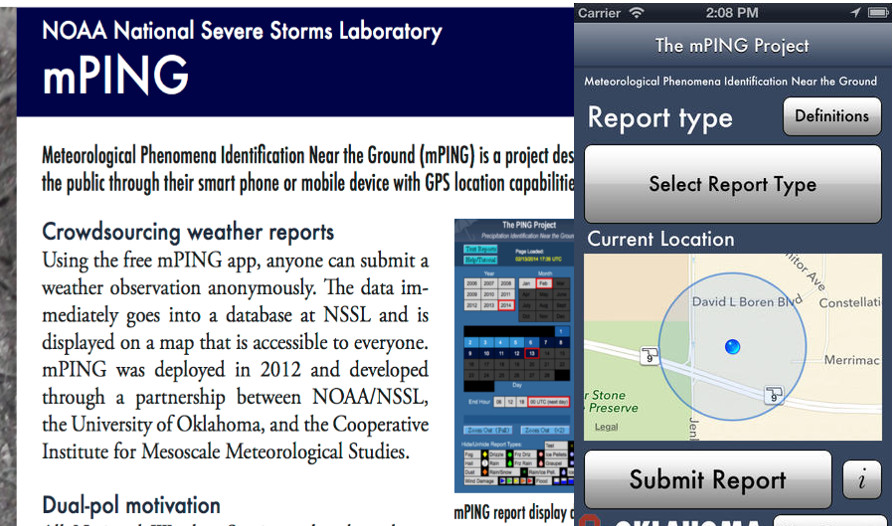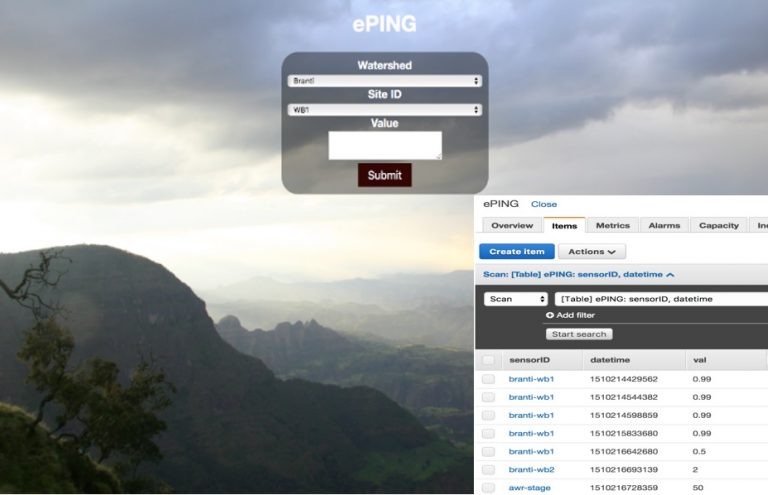Background
A Citizen Scientist Project, mPING (Meteorological Phenomena Identification Near the Ground) was jointly developed by University of Oklahoma and NOAA National Severe Storm Lab for Crowdsourcing Weather Reports. The mPING app was honored in Scientific American's list of Top 8 Apps That Turn Citizens into Scientists.
Objective
The work presented here is to leverage the smart phone mPING app heritage and develop Ethiopia smart phone apps (ePING) to collect hydrometeorological observations such as precipitation rates and types, soil moisture and vegetation/crop stress information by Blue River Basin stakeholders and/or local farmers.
Initial Results and Future Work
A temporal web portal for the ePING has already been developed and setup. Currently the app is also designed to collect surface water info, including river stages, groundwater levels and soil moisture. This data is collected as part of the Citizen Science Initiative at the local agricultural communities located south of Lake Tana.
The team has tested the ePING in house and plans to meet and train the local users and stalk holders in Blue Bile Basin this Spring and Summer.
Dissemination
Zheng and Hong et al., Monitoring surface water quality using social media in the context of citizen science, 2017, Hydrology and Earth System Sciences 21(2):949-961, DOI10.5194/hess-21-949-2017

Figure 1. Smart phone mPING app: display and user interface

Figure 2. Initial result of ePING and its webpage
Research Team
Zac Flamig, Research Scientist of NOAA/University of Oklahoma CIMMA and University of Chicago.
Mengye Cheng, Graduate Student, School of Civil Engineering and Environmental Sciences, University of Oklahoma.
Bo Rao, Graduate Student, School of Computer Sciences, University of Oklahoma
Zhen Hong, Graduate Student, School of Geography and Environmental Sustainability, University of Oklahoma
Yang Hong, Professor of School of Civil Engineering and Environmental Sciences, University of Oklahoma.